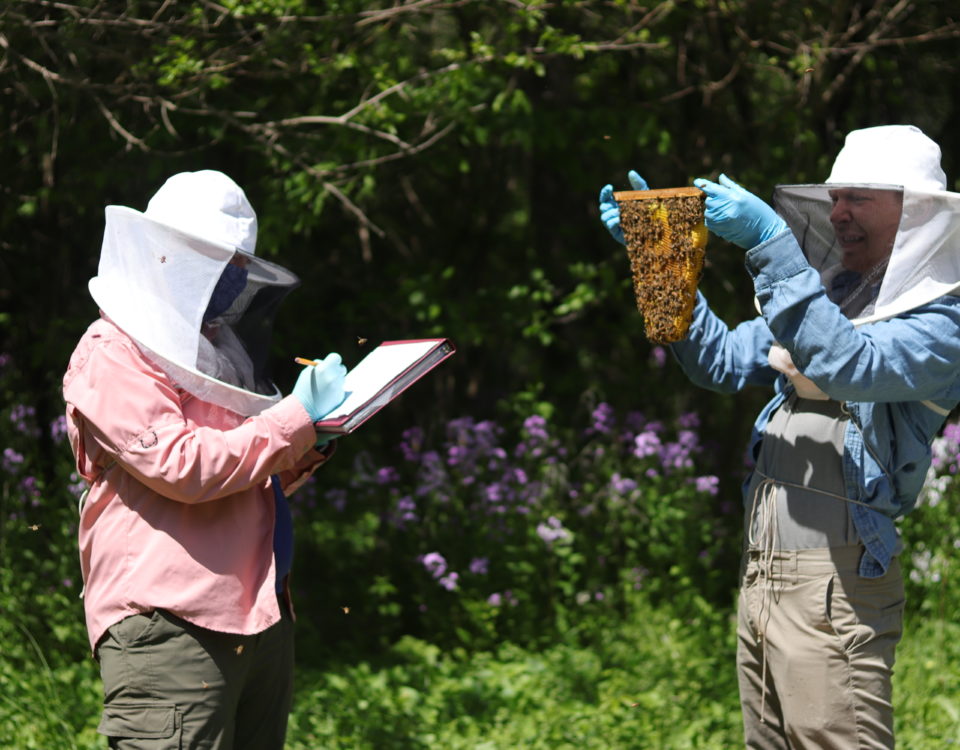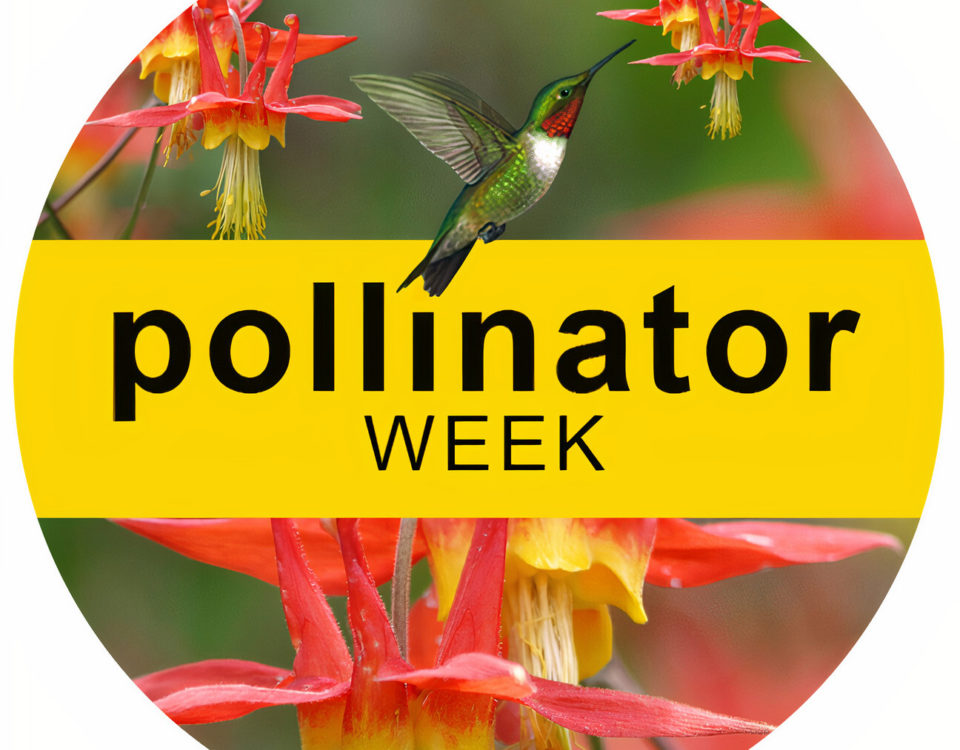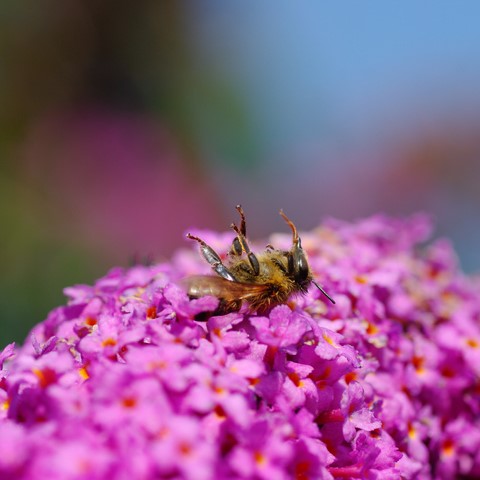- All-In-One Beekeeping for the Bees
- +1-608-728-8233
- info@beepods.com
New Year’s Resolutions for Beekeepers

 It’s that time of year again – the time to start thinking about what your new year’s resolutions will be. While many will make the typical resolutions, like going to the gym, eating better, or setting aside more time every day to spend with their loved ones, we have a few suggestions for some resolutions that beekeepers can make. I sat down with Laura, our head beekeeper here at Beepods, and asked her what she thought would be some good resolutions for backyard beekeepers, and she had a lot of great ideas:
It’s that time of year again – the time to start thinking about what your new year’s resolutions will be. While many will make the typical resolutions, like going to the gym, eating better, or setting aside more time every day to spend with their loved ones, we have a few suggestions for some resolutions that beekeepers can make. I sat down with Laura, our head beekeeper here at Beepods, and asked her what she thought would be some good resolutions for backyard beekeepers, and she had a lot of great ideas:
Read at least one book about beekeeping
Let’s start with an easy one: this year, try to read at least one new book about beekeeping. Our Winter Reading List is a great place to find some suggestions!
Learn from your mistakes
Sit down and identify mistakes you’ve made this past year. Write them all down, and then think about what you’ve learned from those mistakes and what you can do to avoid making them again this year.
Try gentler equipment
If you can, try to transition away from smokers. These cause bees to become stressed. Also, the smoke can get trapped within the bees’ exoskeletons, which is very bad for the bees. Instead, try a gentler tool, like our feather guider. This method of moving bees is much less damaging to the bees both physically and mentally.
Augment your beekeeping toolbox
In that same vein, try picking up some new tools that will help you with the parts of beekeeping that you struggle with. For example, if you have trouble finding eggs and/or queens, buy a magnifying glass to keep with your hive tools.
Treat less often or go treatment-free
If you treat your bees, do so less often. Darwin’s Theory of Evolution is a powerful thing, and it applies to every hive. If you treat your hive, the bees won’t be as strong on the whole. Allowing nature to take its course will ensure that only the strong, healthy bees survive, building up the resilience of the colony over time.
Leave your bees to their own devices
Check on your bees less often. Bees are fairly self-sufficient, so you really only need to look in on them every other week or so. Let your bees do their thing, and you’re bound to see great results!
Keep data and share it with other beekeepers
On that note, when you do your checks, make sure to collect data and share it with other beekeepers! Our Healthy Hive Management Software is a great tool for keeping track of your bees. Not only does it make it easier for you to enter your data, but it makes it easier for you to share with other beekeepers, too! It is important to take data during your checks so that you can practice locating queens and eggs, and get a good sense of what is normal in your hive. When many beekeepers compile all of their data, it allows the beekeeping community to find trends.
 Let your bees keep their honey
Let your bees keep their honey
Allow your bees to keep their honey until spring. The bees use that honey as a food source, and they need it most of all in the cold winter months. Harvest it only in the spring, and let them build up their stores for next winter throughout the summer and fall.
Provide a nectar source for your bees and other pollinators
Plant a pollinator garden! Your bees will love it, and it will draw all kinds of other pollinators, like birds and butterflies. You can plant wildflowers, which add a splash of color to your garden, and smell absolutely delightful. Or, you could plant some pollinator friendly herbs, such as lavender or sage, which, as an added bonus, you can use in your kitchen! You will have the satisfaction of both providing for your local pollinators and being able to use delicious herbs that you grew yourself.
Spread the word
Lastly, and most importantly, spread the word! Go from being a passive backyard beekeeper to bee-ing an advocate. Put up some posters, write a blog, host an informational event at a local meeting place (libraries are great venues for such events), or just tell your friends all about why bees are so important to all of us.
The new year is a great chance to get a fresh start – a chance to build on what you’ve learned in the last year and to set goals for yourself. Above are just a few suggestions for new year’s resolutions for beekeepers.
What’s your new year’s resolution?
Devon Rowley
Latest posts by Devon Rowley (see all)
- Why You Should Purchase the Beepods Online Course - May 16, 2018
- Hive Alive Review - March 16, 2018
- Nucleus Colony or Packaged Bees – Which is right for you? - March 13, 2018



